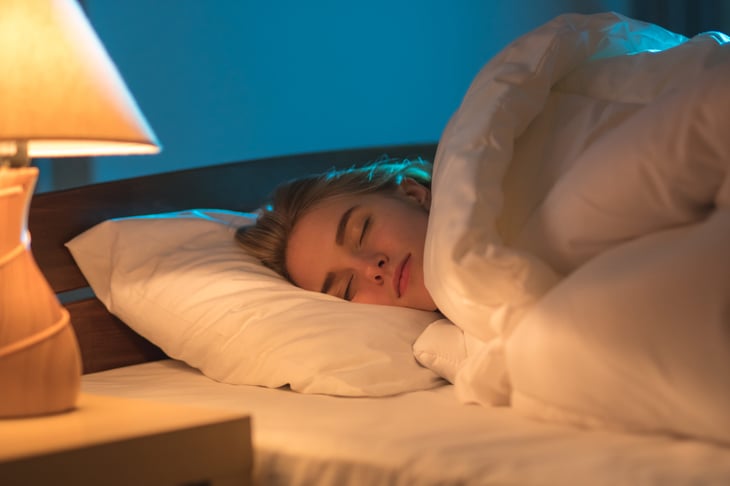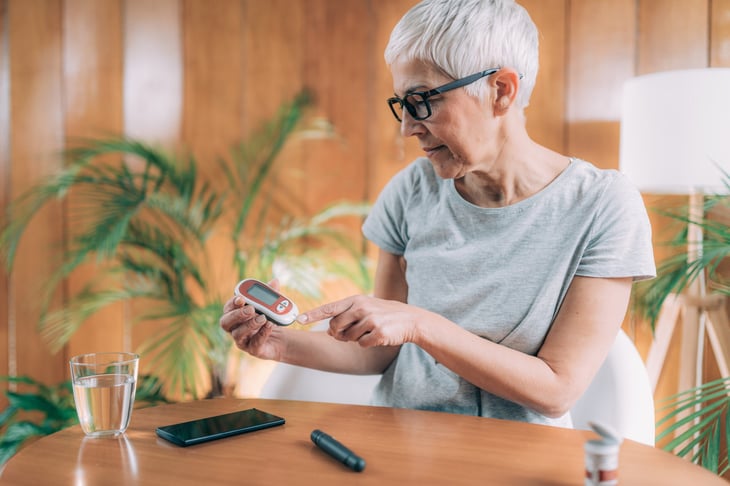
Blackout curtains, sleeping masks, you name it — they all exist for a reason. Sleeping in the dark is simply better for you.
You can improve your sleep, and therefore your day-to-day functioning and health, by setting up the right environment.
The amount of light present in your room is one aspect of that. Too much light interferes with our sleep cycle, and consistent interference can lead to the following health problems.
1. Mental health concerns

Too much exposure to light at night increases someone’s risk of psychiatric problems like anxiety and bipolar disorder. It’s also linked to increased PTSD severity and self-harming behaviors. That’s according to one of the world’s biggest studies on the link between light exposure and mental health with nearly 87,000 participants.
Participants who were exposed to high amounts of light at night had a 30% increased risk of depression. Conversely, extra light during the daytime can decrease risk.
2. Increased blood sugar

Researchers from the Northwestern University Feinberg School of Medicine found that exposure to even moderate ambient lighting while sleeping can hurt your cardiovascular health. It reduces your cardiovascular functioning while sleeping and increases insulin resistance in the morning.
Insulin resistance is when the cells in your muscles, liver and fat don’t properly respond to insulin and so can’t use glucose from your blood to gain energy.
When this happens, your pancreas makes more insulin, pushing your blood sugar up over time. High blood sugar can permanently damage your eyes, nerves, kidneys and blood vessels.
3. Increased heart rate

A dimmed, rather than dark, room is not your heart’s ideal sleeping situation.
The study from Northwestern University points out that exposure to light increases your heart rate, and a quicker heart rate is meant to heighten your alertness during the day. Light’s effect on your heart is still present when you sleep, though, preventing the parasympathetic nervous system (aka your sleep-time system) from taking control.
This inhibits your body from going into restoration mode.
4. Diabetes

Researchers from Northwestern University have found that, in adults between ages 63 and 84, there is a correlation between sleeping with lights on and diabetes.
Even just one night exposed to light can affect your insulin levels, and over time, insulin resistance and diabetes can develop.
5. Dementia

Sleeping with the lights on disrupts your melatonin production and your circadian rhythm, limiting your ability to go into a deep sleep. Research shows that even a 1% dip in deep sleep every year is associated with a 27% increased risk of dementia for those older than age 60.





Add a Comment
Our Policy: We welcome relevant and respectful comments in order to foster healthy and informative discussions. All other comments may be removed. Comments with links are automatically held for moderation.